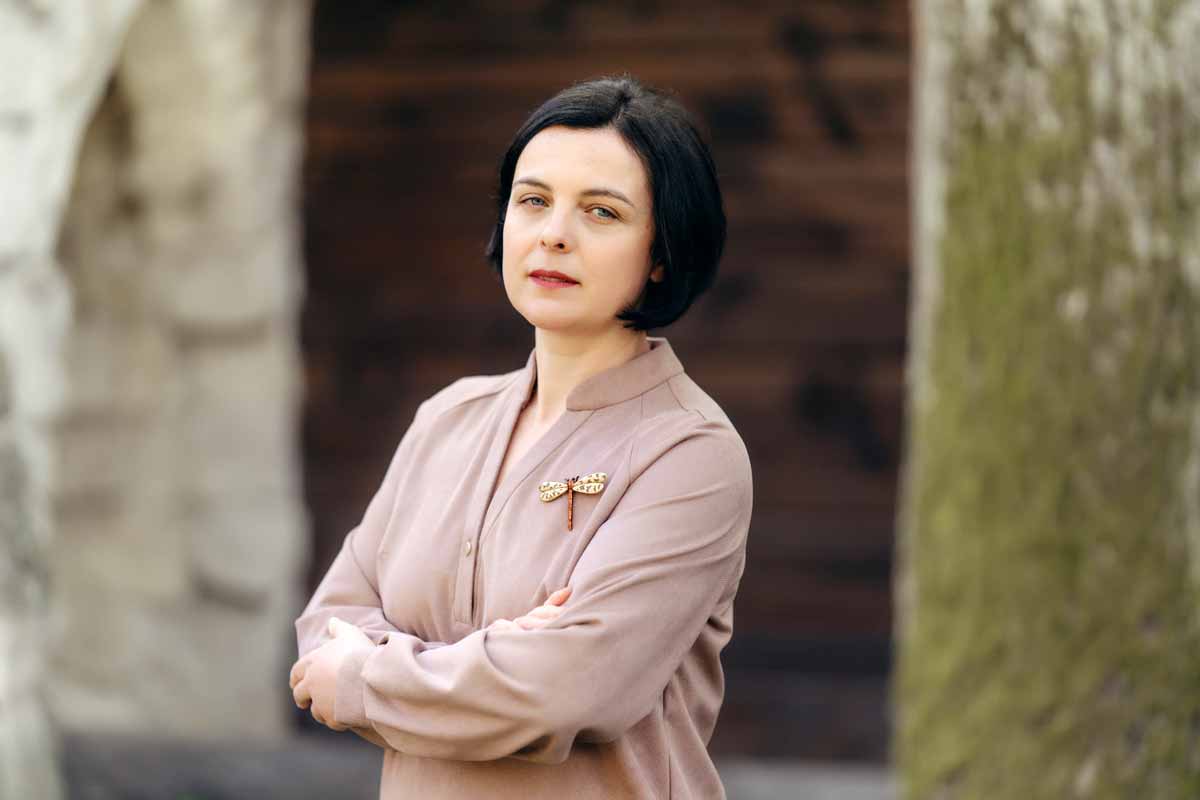Survivors of Sexual Violence Need Immediate Support
“It is not enough to bring perpetrators to justice; it is important to help people recover.”
Reparations are a key element in restoring the rights of victims of conflict-related sexual violence (CRSV). Ukraine is embarking on an initiative in which the state, together with civil society and NGOs, works out steps to pay immediate, interim reparations during wartime.
Khrystyna Kit is the head of JurFem, the Ukrainian Women Lawyers Association, and coordinator of the expert group on CRSV at the prosecutor general’s office. She told IWPR’s Olga Golovina why survivors cannot wait until the war ends or Russia agrees to pay.
Olga Golovina: What specific measures are being taken to ensure that survivors of wartime sexual violence in Ukraine receive reparations?
Khrystyna Kit: As of today, a draft law on providing urgent interim reparations to victims of sexual violence (10132) has been registered in Ukraine. The draft law provides for the payment of urgent interim assistance and a range of social services, because survivors of sexual violence cannot wait for the end of the war. The longer they are left without support, the more the trauma of their experience deepens.
The draft law is currently in parliament and is being finalised by a working group to be adopted as soon as possible. At the same time, the Global Survivors Fund, together with the office of the deputy prime minister for the European and Euro-Atlantic integration of Ukraine, in cooperation with the government commissioner for gender policy, is implementing a project of urgent interim reparation for survivors of CRSV.

It is worth noting that reparations are not just about paying compensation. Compensation is only one of five forms of reparations: restitution, rehabilitation, satisfaction and guarantees of non-repetition.
Restitution is the return of victims to the state that existed before the violation of their rights. Of course, this is not possible because if we are talking about mental and physical health and trauma, we can often only help them survive the trauma and not return them to their previous situation.
However, if we are talking about lost property, documents, work, etc, these are the things that the state can do to restore what has been lost.
Satisfaction is a form of symbolic reparations necessary for war victims. Recognition involves recognising that a person has suffered from war by granting appropriate legal status to such people, honouring their memory by erecting memorials, plaques, etc. This is often not financially costly, and every community can do it.
Rehabilitation involves the implementation of both short and long-term recovery programmes for survivors of sexual violence, based on their needs, both women and men, boys and girls.
As for guarantees of non-recurrence, this form of reparations involves not only the work of the international community and international law but also ensuring that perpetrators are brought to justice at the national level, that there is effective and efficient legislation, that security and defence sector professionals are trained to deal with sexual violence, etc.
Therefore, it is very important to understand that the payment of compensation is not the only aim in implementing reparations measures.
This is complex work that requires a holistic approach, the involvement of various parties and, necessarily, the involvement of victims themselves in decision-making on the implementation of reparations mechanisms at the national and international levels.
What role do international organisations and NGOs play in supporting efforts to provide reparations?
As of now, the Global Survivors Fund, an international organisation, has launched a project in Ukraine to pay urgent interim reparations to 500 survivors of sexual violence. Obviously, we understand that this is not the full number of survivors of sexual violence who will need appropriate urgent support. Therefore, other international foundations, organisations, and governments must support this project so that more people can receive appropriate payments.
As for Ukrainian NGOs, many of them have been providing victims of sexual violence with various types of assistance and support, including psychological, medical and legal, since 2022. In addition, NGOs are involved in working groups to develop a draft law and relevant regulations and advocate for the adoption of relevant documents as soon as possible.
For example, recently, JurFem organised consultations with NGOs working in the regions and organisations that unite victims of CRSV to jointly determine what comprehensive social support should be guaranteed by the state, taking into account the needs of victims. We discussed the draft law on the payment of temporary interim reparations and worked together to improve its provisions.
Such joint work by civil society organisations, international partners, deputies and government agencies is important to ensure that future regulations meet the needs of victims and are effective, not just declarative.
What broader impact do you anticipate these reparations will have on the survivors and their communities?
In my opinion, the adoption of draft law 10132 will provide an opportunity to create a comprehensive system of reparations for victims of war-related sexual violence. I would like this mechanism to be transparent, understandable and accessible to everyone. I would like it to be focused on the needs of the victims and help people to overcome the trauma they have suffered as a result of sexual violence. In my opinion, this is one of the aspects of achieving justice because it is not enough to bring perpetrators to justice; it is important to help people recover. Of course, this is only one part of the work towards implementing reparations. And the international community must understand the need to guarantee Russia's fair punishment.
